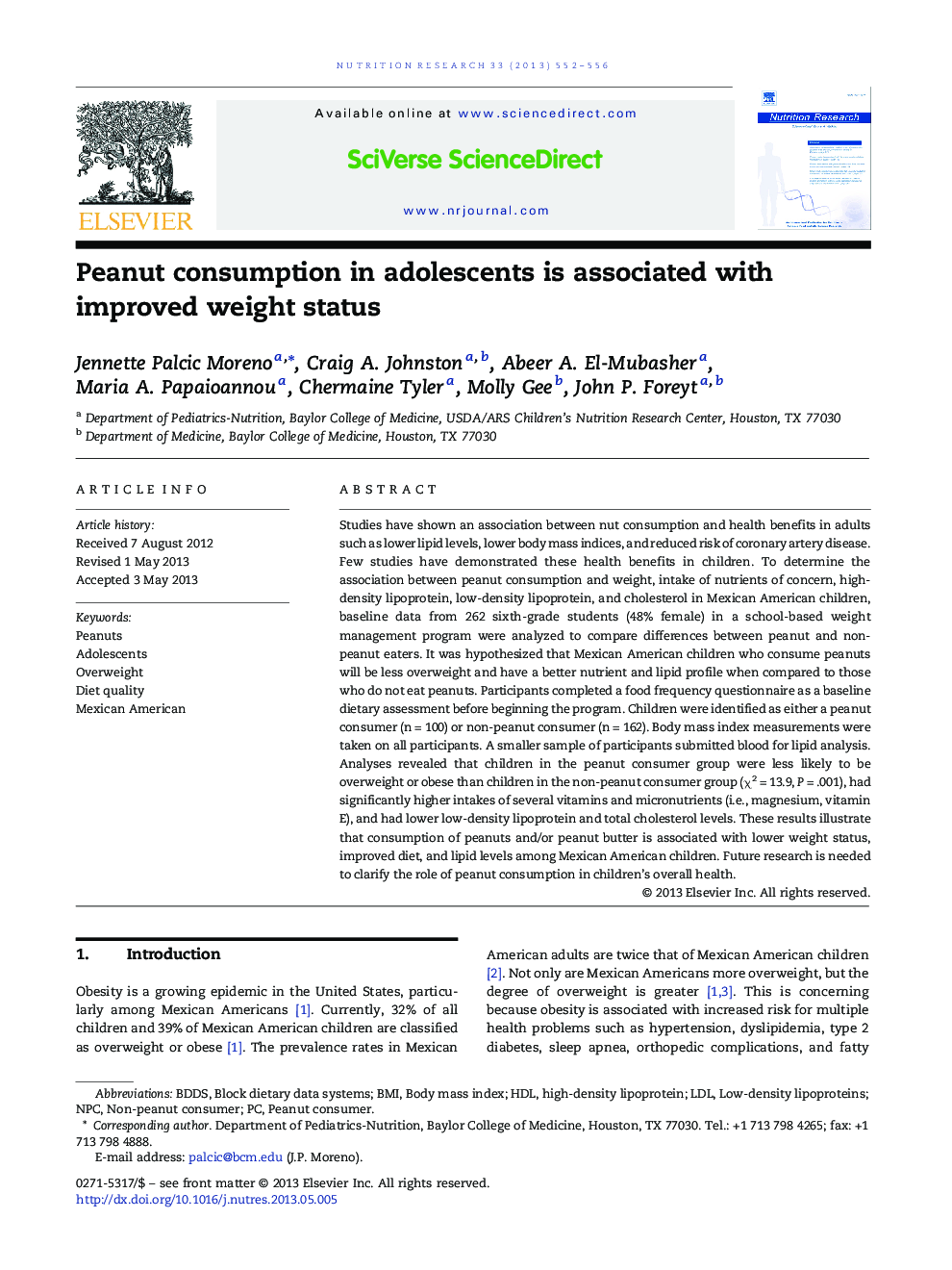| Article ID | Journal | Published Year | Pages | File Type |
|---|---|---|---|---|
| 2808978 | Nutrition Research | 2013 | 5 Pages |
Studies have shown an association between nut consumption and health benefits in adults such as lower lipid levels, lower body mass indices, and reduced risk of coronary artery disease. Few studies have demonstrated these health benefits in children. To determine the association between peanut consumption and weight, intake of nutrients of concern, high-density lipoprotein, low-density lipoprotein, and cholesterol in Mexican American children, baseline data from 262 sixth-grade students (48% female) in a school-based weight management program were analyzed to compare differences between peanut and non-peanut eaters. It was hypothesized that Mexican American children who consume peanuts will be less overweight and have a better nutrient and lipid profile when compared to those who do not eat peanuts. Participants completed a food frequency questionnaire as a baseline dietary assessment before beginning the program. Children were identified as either a peanut consumer (n = 100) or non-peanut consumer (n = 162). Body mass index measurements were taken on all participants. A smaller sample of participants submitted blood for lipid analysis. Analyses revealed that children in the peanut consumer group were less likely to be overweight or obese than children in the non-peanut consumer group (χ2 = 13.9, P = .001), had significantly higher intakes of several vitamins and micronutrients (i.e., magnesium, vitamin E), and had lower low-density lipoprotein and total cholesterol levels. These results illustrate that consumption of peanuts and/or peanut butter is associated with lower weight status, improved diet, and lipid levels among Mexican American children. Future research is needed to clarify the role of peanut consumption in children’s overall health.
